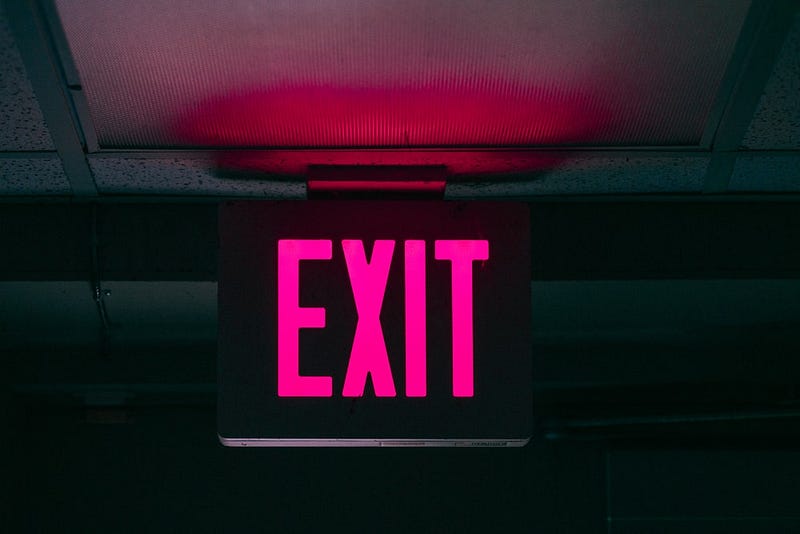The Real Challenge with Twitter: A Reflection on Society
Written on
Understanding the Underlying Issues
Recent discussions surrounding Elon Musk have surged, particularly regarding his contentious acquisition of Twitter. This situation has sparked widespread debate, both online and offline. The prevailing sentiment in many of these discussions is that Twitter is in dire straits now more than ever. Yet, wasn't it already in a state of decline?
While the internet has overall been beneficial for society, the same cannot be said for social media, which often brings more harm than good. I firmly stand by this assertion. I've previously elaborated on the myriad mental health challenges that social media can incite among its users. Additionally, I've highlighted how algorithms tend to lead individuals toward the most extreme interpretations of themselves, resulting in increased division and toxic dialogue.
Twitter, in my view, ranks as one of the least effective platforms, and I doubt that changes in ownership will alter that fact. Unlike Facebook, which some use to maintain connections with family or rekindle friendships, Twitter lacks that function. While Reddit can occasionally foster intelligent discussions—albeit rarely—Twitter fails to provide a similar outlet.
Why should we be concerned about Musk's acquisition of this digital wasteland? What are we afraid of? That Twitter will stop being the intellectual forum for deep discussions it never was?
The True Nature of Twitter's Influence
To understand Twitter's actual impact, we need to consider how it amplifies voices. The platform's primary function is to allow a select few to reach a vast audience. Essentially, it enables those already in positions of power to disseminate their thoughts and ideas to millions. This phenomenon has been evident with various public figures like celebrities, politicians, and business leaders.
These individuals have always been under scrutiny from the media, but Twitter provides a direct line for them to communicate with their followers swiftly. If their opinions are misguided or unfounded, they can spread misinformation even faster. I currently have around 1,500 followers on this platform, and if I actively promoted myself on Twitter, I could easily double that number. This is amplification—changing the reach, not the message.
Many on the left believe that Musk's ownership will lead to increased misinformation. Perhaps, but the platform is already rife with it. Concerns about figures like Donald Trump potentially returning to the platform seem misplaced; the damage was done long before his ban.

Photo by Patrick Fore on Unsplash
Additionally, Twitter has become a convenient source for journalists who prefer to quote individuals rather than engage in direct interviews. This practice can often lead to the misrepresentation of someone's views. Ownership changes are unlikely to affect this trend.
One could argue that Twitter serves as a venue for practicing wit and humor, with many users responding to news events with sarcasm. While this might enhance improvisational skills, similar exchanges could occur on platforms like Reddit or during live performances.
Lastly, Twitter is infamous for allowing users to dredge up old posts to publicly shame others. Some may see this as a form of justice, but I argue it fosters negative behaviors, such as self-righteousness through public condemnation.

Photo by Keagan Henman on Unsplash
Who Uses Twitter and Musk's Influence
So, who comprises Twitter's user base? Unfortunately, too many individuals. Among them are fervent political supporters, trolls, and those perpetually seeking to be offended.
Users often become more polarized when they invest too heavily in public figures. Those unable to distinguish between reliable and false information can easily find themselves spiraling into radical beliefs. The easily offended will continue to discover new triggers with every scroll.
These trends are disconcerting and far from novel. Despite our growing awareness of social media's adverse effects, we still engage with these platforms as we did in 2008. Social media presents a Faustian bargain, trading personal well-being for the allure of endless information and engagement.
Part of this issue is the way social media amplifies existing societal weaknesses. While it does not create these flaws, it certainly encourages and exploits them. Humans are prone to biases and conflicts, and we should strive to counteract our worst instincts, steering clear of environments that nurture them.
I have chosen to abstain from alcohol and avoid environments that might trigger negative behavior. Likewise, if social media incites frustration, spreads misinformation, or hampers productivity, it may be time to step back. For many, returning to these sites resembles an addict's struggle to pass by a bar without succumbing.
Musk's Ownership and its Implications
Now, let's examine Musk's influence—his presence alone can polarize opinions. While many admire him, an equal number harbor disdain. Reactions to his takeover bid reflect the same divisions present in other Musk-related discussions.
Some users have vowed to leave the platform entirely upon his assumption of control. To that, I say—fantastic! Anything that encourages individuals to detach from toxic content deserves support. If Musk were to collaborate with figures like Hillary Clinton in this endeavor, it might even prompt more users to exit Twitter.
Ultimately, we must recognize that the core issue with these platforms isn't solely their ownership. The more significant problem lies with us, the users. We alone are accountable for how we engage with social media.
Chapter 2: The Problem With Elon Musk
The first video, "The Problem With Elon Musk," critiques Musk's influence on modern society and examines the potential consequences of his ownership over Twitter.
Chapter 3: Zuckerberg Just Proved Elon Musk Was Right
The second video, "Zuckerberg Just Proved Elon Musk Was Right," explores how social media giants shape public perception and the implications of their leadership decisions.